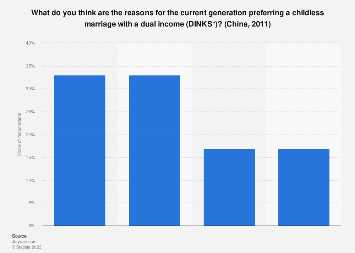What is Dual Income No Kids (DINK)?
Dual Income No Kids (DINK) is a term used to describe couples who are both working professionals and do not have any children. This lifestyle choice allows them to have more financial freedom and flexibility in their lives.
Definition and Explanation
DINK couples are typically in their late 20s to early 40s and have made a conscious decision to not have children. This decision can be based on various factors such as career goals, financial considerations, or personal preferences.
By choosing not to have children, DINK couples are able to focus on their careers and enjoy a higher disposable income. They have the freedom to pursue their own interests, travel, and indulge in luxury items or experiences.
Types of DINK Couples
There are two main types of DINK couples:
- Voluntary DINK: These are couples who have actively chosen not to have children and are content with their decision. They may have different reasons for this choice, but they are united in their desire to prioritize their careers and personal lives.
- Involuntary DINK: These are couples who may have initially wanted to have children but are unable to do so due to various reasons such as infertility or medical conditions. While they may have had different plans, they have embraced the DINK lifestyle and are making the most of their situation.
Marketing to DINK Couples
As DINK couples have higher disposable incomes and more free time, they are an attractive target market for various industries. Companies can tailor their marketing strategies to appeal to DINK couples by highlighting products or services that align with their lifestyle.
For example, travel companies can promote luxury vacations or adventure trips that cater to the interests of DINK couples. Financial institutions can offer investment and retirement planning services to help DINK couples secure their financial future.
Targeting Financial Freedom
One of the key motivations for DINK couples is achieving financial freedom. They have the ability to save more, invest wisely, and enjoy a comfortable lifestyle without the financial responsibilities of raising children.
Companies can tap into this desire for financial freedom by offering products or services that help DINK couples manage their finances effectively. This can include budgeting apps, investment platforms, or financial planning services.
Definition and Explanation
Dual Income No Kids (DINK) refers to a demographic group consisting of married or cohabiting couples who have chosen not to have children. This lifestyle choice allows them to focus on their careers and enjoy a higher level of financial freedom. DINK couples typically have two sources of income, which enables them to have a higher disposable income compared to couples with children.
Benefits of being a DINK couple:
- Career Advancement: Without the responsibilities of raising children, DINK couples can focus on their careers and professional development. They have the freedom to pursue higher education, take on challenging projects, and advance in their chosen fields.
- Flexibility and Spontaneity: DINK couples have the freedom to make spontaneous decisions and enjoy a flexible lifestyle. They can travel on short notice, try new activities, and explore their interests without having to consider the needs and schedules of children.
- Strong Relationship: With more time and resources to invest in their relationship, DINK couples often have the opportunity to build a strong foundation and bond. They can prioritize quality time together, shared experiences, and mutual support.
Overall, being a DINK couple offers a unique lifestyle that allows for financial stability, personal growth, and the freedom to pursue individual and shared goals. It is a choice that provides opportunities for self-fulfillment and a strong relationship, while allowing couples to enjoy the benefits of a dual income.
Types of DINK Couples

Voluntary DINK
Voluntary DINK couples are those who have made a conscious decision not to have children. They may have various reasons for this choice, such as prioritizing their careers, enjoying their freedom, or simply not feeling the desire to become parents. Voluntary DINK couples often lead busy and fulfilling lives, focusing on their professional growth, personal interests, and enjoying their financial stability.
Involuntary DINK

Involuntary DINK couples, on the other hand, are those who may want to have children but are unable to do so due to various reasons. This could be due to infertility issues, medical conditions, or other circumstances that prevent them from conceiving or adopting children. Involuntary DINK couples may experience feelings of sadness, frustration, or disappointment due to their inability to start a family, but they often find alternative ways to channel their love and care, such as through pets, nieces and nephews, or involvement in community activities.
Regardless of whether a couple is voluntary or involuntary DINK, it is important for marketers to understand their unique needs and preferences. By recognizing and targeting these different types of DINK couples, businesses can tailor their marketing strategies to effectively reach this demographic and provide them with products and services that cater to their lifestyle and aspirations.
| Voluntary DINK | Involuntary DINK |
|---|---|
| Conscious decision not to have children | Desire to have children but unable to do so |
| Prioritize careers and personal interests | Channel love and care through alternative means |
| Enjoy financial stability | May experience feelings of sadness or frustration |
Voluntary DINK
A voluntary DINK couple is one that actively chooses not to have children. They make a conscious decision to focus on their careers, personal growth, and financial stability instead of starting a family. These couples often prioritize their own needs and desires, enjoying the freedom and flexibility that comes with not having children.
Voluntary DINK couples may have various reasons for their decision. Some may value their independence and prefer to have more time and resources for themselves. Others may have personal or health-related concerns that make them hesitant to have children. Additionally, some voluntary DINK couples may have experienced negative experiences or challenges related to parenting, leading them to choose a child-free lifestyle.
Benefits of Being a Voluntary DINK
There are several benefits that voluntary DINK couples can enjoy:
- Financial Freedom: Without the financial responsibilities of raising children, voluntary DINK couples often have more disposable income. They can use this extra money to invest, travel, pursue hobbies, or save for their future.
- Career Advancement: Voluntary DINK couples can dedicate more time and energy to their careers, which can lead to faster promotions, higher salaries, and increased job satisfaction.
- Flexibility and Spontaneity: Without the demands of childcare, voluntary DINK couples have the freedom to make spontaneous plans, travel at a moment’s notice, and enjoy their leisure time without restrictions.
- Personal Growth: Voluntary DINK couples can focus on their personal development, pursuing education, hobbies, and interests that enrich their lives and contribute to their overall happiness.
Overall, voluntary DINK couples have the opportunity to create a lifestyle that aligns with their individual goals and aspirations. They can enjoy the advantages of a child-free life while prioritizing their own happiness and fulfillment.
Involuntary DINK
Involuntary DINK refers to couples who do not have children due to various circumstances beyond their control. This could include medical issues, infertility, or other personal reasons. While some couples may have initially planned to have children, they find themselves unable to do so.
For these couples, being a DINK is not a choice but a result of circumstances. They may experience feelings of sadness, frustration, or disappointment due to their inability to have children. However, being an involuntary DINK does not mean that these couples cannot lead fulfilling and happy lives.
For example, you could promote travel packages tailored for couples who enjoy exploring the world without the responsibilities of raising children. Highlight the benefits of financial stability and the freedom to pursue personal interests and hobbies. Emphasize the advantages of a child-free lifestyle, such as having more disposable income, flexibility, and the ability to focus on personal and career goals.
Additionally, consider partnering with organizations or support groups that provide resources and assistance to couples dealing with infertility or other challenges related to starting a family. This can help establish your brand as empathetic and supportive, creating a positive association with your products or services.
Marketing to DINK Couples

One effective strategy for marketing to DINK couples is to focus on products and services that cater to their desire for financial freedom and a comfortable lifestyle. This can include luxury travel packages, high-end home decor, premium dining experiences, and exclusive memberships to clubs or organizations.
Additionally, DINK couples often prioritize self-care and personal development. They are more likely to invest in fitness memberships, wellness retreats, and educational courses. By highlighting the benefits of these offerings and how they can enhance their quality of life, businesses can capture the attention of DINK couples.
Another important aspect to consider when marketing to DINK couples is their desire for convenience and efficiency. They value their time and are willing to pay a premium for products and services that make their lives easier. This can include home automation systems, meal delivery services, and personalized concierge services.
It is also crucial to recognize that DINK couples have diverse interests and hobbies. Some may be passionate about art and culture, while others may enjoy outdoor activities or technology. By tailoring marketing campaigns to align with their specific interests, businesses can create a strong connection with DINK couples and increase their chances of conversion.
Targeting Financial Freedom
Here are some strategies to target DINK couples and promote financial freedom:
1. Investment Opportunities

Highlight investment opportunities that can help DINK couples grow their wealth and achieve financial independence. This could include promoting stocks, real estate, or other investment vehicles that align with their goals and risk tolerance.
2. Retirement Planning
Emphasize the importance of planning for retirement early on. DINK couples have the advantage of being able to save more for retirement without the financial obligations of raising children. Offer retirement planning services or products that cater to their specific needs and goals.
3. Travel and Experiences
Appeal to the adventurous side of DINK couples by promoting travel and experiences. Highlight destinations and activities that cater to their interests and offer packages or discounts that make it easier for them to explore the world.
4. Luxury Goods and Services
Since DINK couples have higher disposable incomes, they are often willing to invest in luxury goods and services. Showcase high-end products or exclusive experiences that cater to their tastes and lifestyle.
5. Personal Development
Target DINK couples who are focused on personal growth and development. Promote workshops, courses, or coaching services that can help them enhance their skills or pursue new hobbies.
| Benefits of Targeting DINK Couples for Financial Freedom |
|---|
| 1. Higher disposable incomes allow for greater investment potential. |
| 2. DINK couples have more flexibility to save for retirement. |
| 3. They are more likely to spend on luxury goods and services. |
| 4. DINK couples are open to personal development opportunities. |
By targeting DINK couples and offering them opportunities to achieve financial freedom, businesses can tap into a lucrative market segment that values independence, flexibility, and personal growth.

Emily Bibb simplifies finance through bestselling books and articles, bridging complex concepts for everyday understanding. Engaging audiences via social media, she shares insights for financial success. Active in seminars and philanthropy, Bibb aims to create a more financially informed society, driven by her passion for empowering others.
